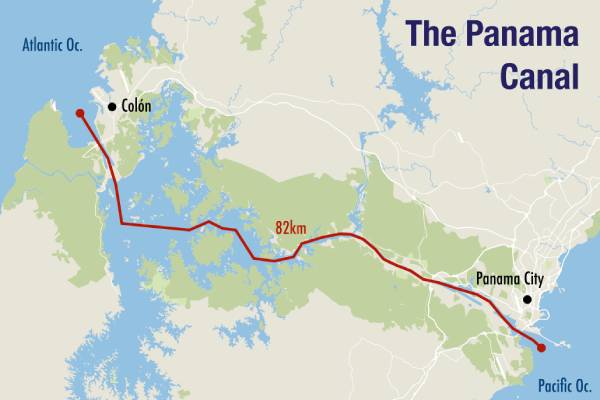
President-elect Donald Trump‘s recent statements about reclaiming U.S. control over the Panama Canal have sparked significant debate. While the political and diplomatic ramifications are evident, it’s crucial to examine the potential supply chain implications of such a move.
Strategic Importance of the Panama Canal
The Panama Canal is a pivotal artery in global trade, facilitating the movement of approximately 4% of the world’s goods. It enables efficient maritime routes between the Atlantic and Pacific Oceans, significantly reducing transit times and costs for shipping companies. The United States is the canal’s top user, underscoring its importance to American commerce.
Potential Supply Chain Disruptions
A U.S. attempt to regain control over the canal could lead to several supply chain disruptions:
- Operational Uncertainty: Transitioning control might introduce uncertainties in canal operations, affecting scheduling and reliability. Shipping companies depend on predictable transit times; any disruptions could lead to delays and increased costs.
- Geopolitical Tensions: Such a move could strain U.S.-Panama relations and potentially involve other nations with vested interests in the canal. Geopolitical instability often leads to increased shipping insurance premiums and rerouting, further escalating costs.
- Trade Route Adjustments: In response to instability, shipping companies might seek alternative routes, such as the Suez Canal or the Cape of Good Hope, which would increase transit times and fuel consumption.
Economic Implications
The canal plays a significant role in the economies of both Panama and the United States:
- Panama’s Economy: The canal is a major revenue source for Panama. A change in control could have severe economic repercussions for the country and potentially lead to economic instability in the region.
- U.S. Trade: While the U.S. is the primary user of the canal, the current arrangement allows for efficient and cost-effective transit. Altering this dynamic could increase operational costs for American importers and exporters.
Industry Perspectives
Industry experts express concerns over the potential implications:
- Shipping Companies depend on the canal for efficient routes; disruptions could force them to find longer, more expensive paths.
- Manufacturers and Retailers rely on timely deliveries; any delays could disrupt production schedules and inventory management.
What It All Means
While the idea of reclaiming control over the Panama Canal may resonate with certain political sentiments, the supply chain implications could be far-reaching. Disruptions in canal operations, increased geopolitical tensions, and economic instability are significant risks that could adversely affect global trade and the economies of the United States and Panama. To mitigate these risks, supply chain stakeholders should closely monitor developments and prepare for potential contingencies.